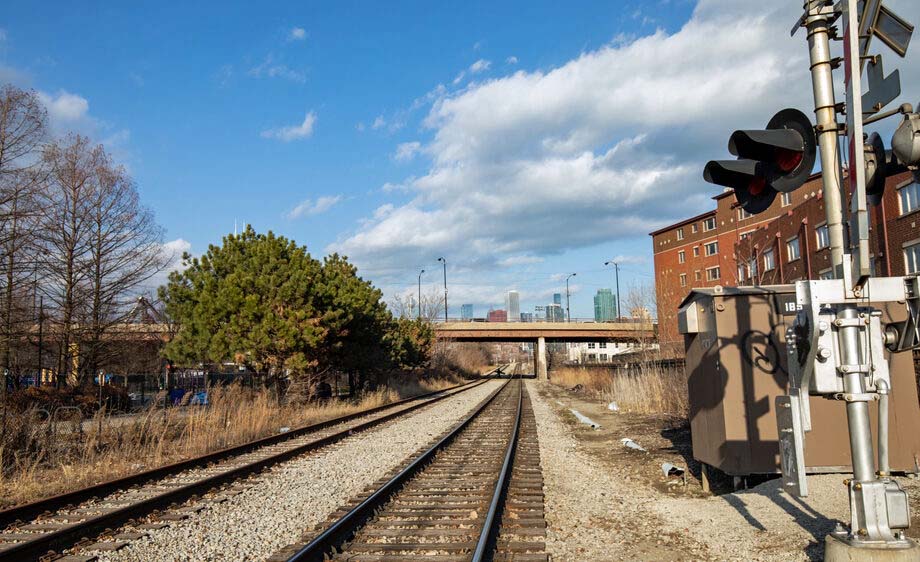
Chicago Illinois USA - Four congressional leaders from Illinois want the Surface Transportation
Board (STB) to hold off on making a decision about whether to approve the merger between Canadian Pacific and Kansas
City Southern (CPKC) because of their concerns about the data used in the Environmental Impact Statement (EIS) prepared
by the board.
The Illinois delegation consisting of U.S. Senate Majority Whip Dick Durbin, Sen. Tammy Duckworth, Reps. Raja
Krishnamoorthi, and Delia Ramirez, all Democrats, is calling for the data used in the EIS to be vetted by an
independent party for its accuracy and reliability.
Doing so would create a more accurate assessment of the impacts on the Chicago region, they argued in a Friday letter
addressed to STB Chairman Marty Oberman.
They say the EIS relies on data that CP provided to STB on how much freight traffic might increase in the Chicago
region because of the merger.
But there is other data out there that conflicts CP's data, such as freight traffic modeling data by commuter railroad
Metra projects that shows more significant impacts.
Metra uses track operated by CP.
The lawmakers are concerned that the CPKC merger would result in increased noise pollution, blocked crossings, weaker
safety conditions, and commuter rail delays, and that is why they want to ensure the reliability of the freight
traffic projections.
The board should "conduct a supplemental analysis of the impacts of the merger on the Chicago region using
modeling provided by Metra or by conducting its own independent modeling.
This would more accurately assess the impacts on Illinois communities, determine appropriate mitigation measures, and
meet the STB's obligations under the National Environmental Policy Act," the lawmakers said.
The lawmakers pointed out one area of difference in their letter: CP projects the merger would increase freight traffic
in the Chicago area from three freight trains per day to 11, but Metra projects an increase of 18 trains per
day.
"Eight additional freight trains on Metra's Milwaukee District West line between Bensenville and Elgin, Illinois,
already would have significant negative impacts on Metra's operations and the safety and livelihood of local
communities, and 15 additional trains would dramatically increase those impacts," the lawmakers said in their
Friday letter.
"The EIS fails to reconcile the fact that there is significant uncertainty in the data. Unless the STB ensures the
reliability of CP's projections, it cannot accurately assess or quantify the true environmental impacts of the proposed
merger, or determine the appropriate mitigation measures required to protect the safety of local communities, and
ensure the reliability of regional commuter railroad operations.
"Moving forward with a decision on the merger without further analysis risks overlooking serious adverse impacts
on these communities, including congestion and passenger train delays, grade-crossing delays that impact auto traffic,
and emergency services, and dangerous conditions for the public."
This isn't the first time that an Illinois congressional delegation pressed STB to scrutinize the merger.
Durbin, Duckworth, and Krishnamoorthi raised their concerns in a letter last July about how a projected increase in
merger-related freight rail traffic could impact Chicago-area communities.
STB released a final version of the EIS in January, saying that increased railroad noise levels in some communities
would be the greatest environmental impact resulting from the merger between CP and KCS.
The board has not indicated beyond a procedural timeline when it will render its decision on whether to approve the
merger, but CP has said it hopes to garner the board's approval in early 2023.
Shareholders of CP and KCS approved the US$31 billion merger in December 2021 and the deal has been before STB for
review.
CP and KCS maintain the merger would create a single rail system known as Canadian Pacific Kansas City, or CPKC, with a
network that would extend from Canada into the U.S. and Mexico.
The Illinois congressional delegation isn't alone in voicing their concerns about the merger, the U.S. Department of
Justice said in a January letter to the board that the merger would create fewer options for shippers in an industry
that has already consolidated considerably in recent decades.
DOJ had expressed similar sentiments in 2021.
Joanna Marsh.
(likely no image with original article)
(usually because it's been seen before)
provisions in Section 29 of the
Canadian Copyright Modernization Act.

